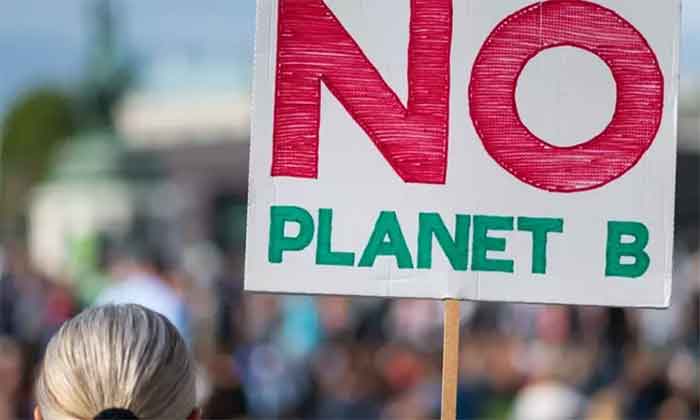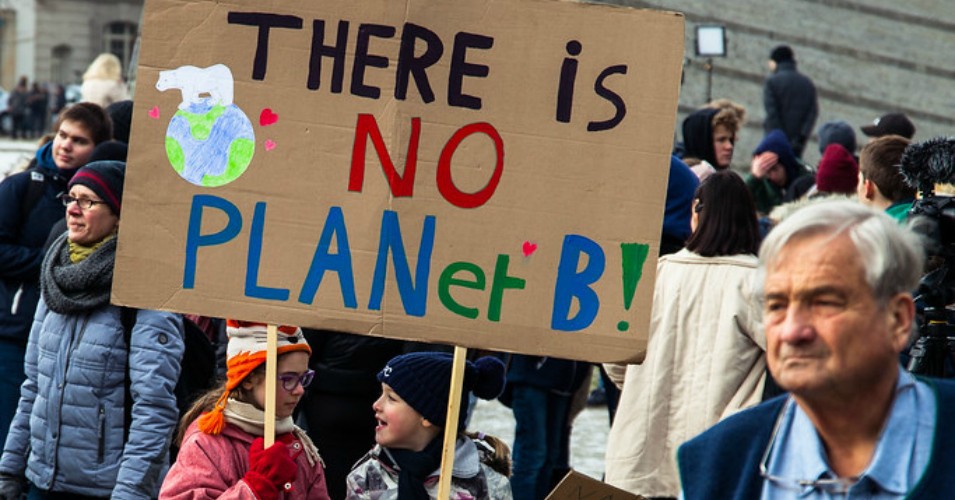
It’s only 76 days until world leaders convene in Glasgow, Scotland, for some of the most important international negotiations in history. What happens during the twelve days of the Glasgow Climate Talks (known by climate wonks as COP26) will go a long way to determining the fate of much of the Paris Climate Agreement―which is another way of saying the fate of much of life on earth.
When the Paris Climate Agreement was signed back in 2015, it was widely acknowledged that even if every one of the climate pledges made was met, we would still be living in a world of more than 3°C of warming.
3°C may not sound like a lot, but as that radical newspaper, The Economist, recently reported it would be enough to expose two billion more people to extreme drought, annihilate the Amazon rainforest, destroy the world’s coral reefs, and drown many of the world’s coastal cities.
Of course, everyone in Paris knew this. It’s why perhaps the most important part of the Paris Agreement is what’s informally known as the “ratchet mechanism”: a commitment that every five years the world’s nations will get back together and “ratchet up” the ambition of their climate goals. Glasgow is to be the first pull on the “ambition” ratchet―and because the fight against global warming is a race against time, it will also be the most important.
It is vital that the world’s nations use Glasgow to commit to immediately and rapidly reducing their dependency on fossil fuels, not merely set climate goals that are decades into the future.
However, while the majority of the focus will be on governments and their new climate pledges, it’s important not to lose sight of the fact that the Glasgow Climate Talks are a moment for the world’s corporations to act as well; in particular, the US financial institutions that are the fossil fuel industry’s greatest enablers.
Since the Paris Agreement was signed, just six US banks have loaned more than $1 trillion to the fossil fuel industry; US-based asset manager, BlackRock, is the world’s largest investor in fossil fuels. Irrespective of what governments do, this has to change if we are to avoid a climate cataclysm.
Unfortunately, both President Biden and Wall Street are failing key climate tests in the months leading up to Glasgow―nowhere more so than in their failure to act on the Line 3 tar sands pipeline.
If it is allowed to become operational, Line 3 will result in an additional 193 million tons of greenhouse gas being released into the atmosphere every year―making the climate impact of Line 3 greater than that of the nation of Argentina, home to 45 million people. By revoking key permits that were granted in the final few weeks of the Trump Administration, President Biden could stop Line 3 with the strike of a pen. He hasn’t done so―even as hundreds of thousands have asked him to and shocking images have emerged of militarized police tear-gassing, macing, and assaulting nonviolent Water Protectors opposed to the pipeline.
Like every other major new fossil fuel project, Line 3 is being built with Wall Street’s money. It is money from banks like Chase and Citibank that the Enbridge corporation is using to both buy the pipeline and literally pay for the rubber bullets that police have used to shoot those opposed to the pipeline.
So herein lies the problem: We have 76 days until some of history’s most important climate talks and we have a President who is failing to lift a finger to stop massive new fossil fuel projects and banks that are perfectly happy to continue making profit off of the end of the world as we know it. .
This is why Stop the Money Pipeline, a coalition of more than 160 organizations, has recently launched Deadline Glasgow―Defund Climate Chaos, an all-hands-on-deck campaign, demanding genuine, transformational climate action from both President Biden and Wall Street by the start of the Glasgow Climate Talks.
We know that we won’t see the action we need in Glasgow unless the climate movement is big enough, bold enough and powerful enough to hold governments and corporations alike accountable. That’s why Stop the Money Pipeline and our partners plan to spend every one of the next 76 days putting as much pressure as humanly possible on both Biden and Wall Street.
Two weeks ago, more than 800 people joined us for the Deadline Glasgow campaign kickoff. Since then, there have been actions at bank branches in nearly forty cities. More than 130,000 people have signed the campaign petition and next month we plan to deliver it―noisily and creatively―to hundreds of bank branches, insurance offices, Federal Reserve buildings and the headquarters of the world’s largest investor in fossil fuels, BlackRock.
Between now and the start of the Glasgow Climate Talks, we plan to train people in civil disobedience, disrupt corporate greenwashing events, and support mass mobilizations on our targets. We’ve also set a public goal of at least 500 actions at our targets by the start of the Glasgow Talks.
We know that this moment is as serious as it gets. Wildfires burning towns to the ground, heatwaves killing hundreds of people, deadly floods washing away towns in Japan, China, and Europe, hundreds of millions of people choking on wildfire smoke. The climate crisis could not be more urgent.
In the months ahead we’re going to do our very best to run a campaign that comes close to feeling as urgent as the climate crisis itself―we sincerely hope you’ll join us for it. We need you.















































